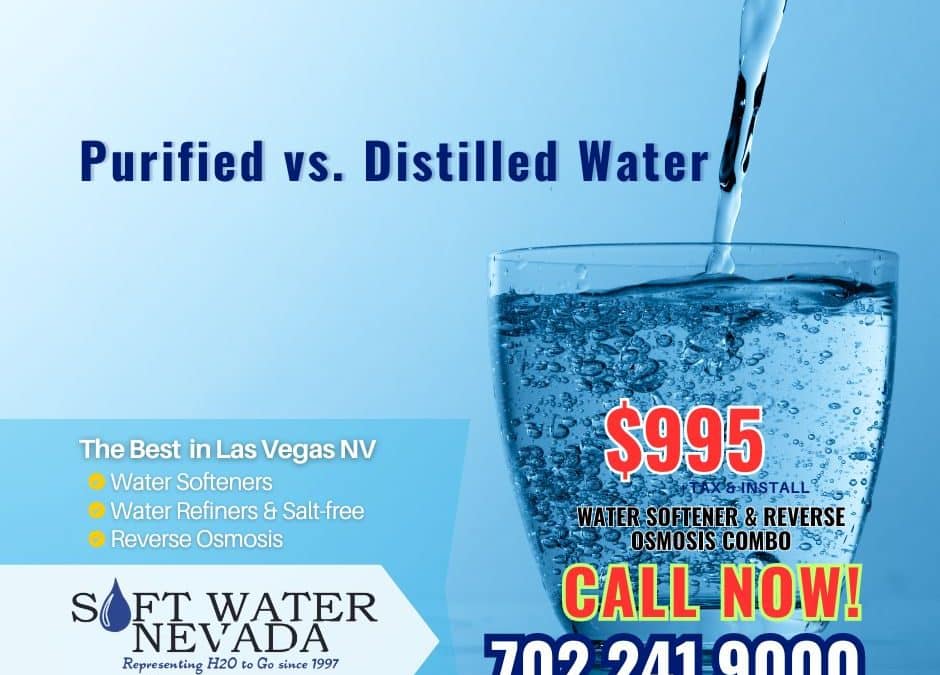Purified vs. Distilled Water: Understanding the Differences and Benefits
Purified vs. Distilled Water:
Water is essential for life, and the quality of the water we consume can have significant impacts on our health. Two common types of treated water are purified and distilled water. While both are considered safe to drink, they undergo different processes and offer unique benefits. This article will explore the differences between purified and distilled water, their respective benefits, and which type might be best suited for various needs.
What is Purified Water?
Purified water is water that has undergone a filtration process to remove impurities and contaminants. The goal is to produce water that is clean and safe for consumption. Several methods can be used to purify water, including:
- Reverse Osmosis (RO): This process uses a semi-permeable membrane to remove ions, molecules, and larger particles from drinking water. It’s effective at removing contaminants such as lead, chlorine, fluoride, and dissolved salts.
- Carbon Filtration: Activated carbon filters are used to remove organic compounds, chlorine, and other chemicals that can affect the taste and odor of water.
- Ultraviolet (UV) Light: UV light is used to kill bacteria and viruses, providing an additional layer of safety.
- Distillation: Though typically associated with distilled water, distillation can also be part of a purification process.
Check our 100% 5-star Google Reviews!

Benefits of Purified Water
- Healthier Option: By removing contaminants like chlorine, heavy metals, and bacteria, purified water can reduce the risk of various health issues.
- Better Taste: The removal of chlorine and other chemicals often improves the taste and odor of water.
- Environmentally Friendly: Using a home water purifier reduces the need for bottled water, which can help decrease plastic waste.
- Convenience: Home purification systems provide a constant supply of clean water without the need to buy and store bottled water.
Distilled water is water that has been boiled into steam and then condensed back into liquid form. This process effectively removes a wide range of contaminants, including:
- Inorganic Minerals: Such as calcium, magnesium, and lead.
- Biological Contaminants: Including bacteria, viruses, and protozoa.
- Chemical Contaminants: Such as nitrates and certain pesticides.
The distillation process involves heating water to its boiling point, capturing the steam, and then cooling it back into liquid. Since most contaminants do not vaporize, they are left behind, resulting in highly purified water.
Benefits of Distilled Water
- Highly Pure: Distillation removes nearly all impurities, making it one of the purest forms of water available.
- Safe for Medical Use: Due to its purity, distilled water is often used in medical settings, laboratories, and for preparing baby formula.
- Ideal for Appliances: Distilled water prevents mineral buildup in appliances such as humidifiers, steam irons, and car batteries, extending their lifespan.
- Chemical-Free: No chemicals are added during the distillation process, making it suitable for those with sensitivities to chlorine and other treatment chemicals.
While both purified and distilled water go through processes to remove impurities, they differ in methods and the extent of purification:
- Purification Methods: Purified water can be produced using various methods such as reverse osmosis, carbon filtration, and UV treatment. Distilled water, however, is produced solely through distillation.
- Impurity Removal: Distillation removes nearly all types of impurities, including minerals, making distilled water almost completely pure. Purified water retains some minerals, which can be beneficial for health.
- Taste: Purified water often tastes better than distilled water due to the presence of natural minerals. Distilled water can taste flat or bland because it lacks these minerals.
- Usage: Purified water is generally preferred for drinking due to its taste and retained minerals. Distilled water is used in medical settings, for baby formula, and in appliances to avoid mineral buildup.

When to Use Purified Water
- Everyday Drinking: Purified water is an excellent choice for daily hydration due to its good taste and health benefits.
- Cooking: Using purified water in cooking can enhance the flavors of food by eliminating the taste of chlorine and other contaminants.
- Plants: Watering plants with purified water can prevent the buildup of harmful salts and chemicals in the soil.
- Aquariums: Fish and other aquatic life can thrive in purified water, as it lacks harmful chlorine and heavy metals.
When to Use Distilled Water
- Medical and Laboratory Use: Distilled water is essential in medical and laboratory environments due to its high purity.
- Baby Formula: Parents often use distilled water to prepare baby formula to ensure it is free from contaminants.
- Cleaning and Sterilization: Distilled water is ideal for cleaning and sterilizing equipment, as it leaves no residue.Both purified and distilled water offer unique benefits, and the choice between them depends on specific needs and preferences. Purified water, with its various filtration methods, provides clean, great-tasting water suitable for everyday use. Distilled water, on the other hand, offers the highest level of purity, making it ideal for medical, laboratory, and specific household applications.
- Appliances: Using distilled water in appliances such as humidifiers and steam irons prevents mineral deposits, prolonging their life.Understanding the differences between these two types of water can help you make an informed decision about which is best for you and your family. Whether you opt for purified or distilled water, both provide a safer and healthier alternative to untreated tap water.
- Mayo Clinic Staff. (2022). “Is it better to drink distilled or purified water?” Mayo Clinic. Retrieved from Mayo Clinic.
- Centers for Disease Control and Prevention (CDC). (2021). “Water Treatment.” CDC. Retrieved from CDC.
- U.S. Environmental Protection Agency (EPA). (2022). “Drinking Water Requirements for States and Public Water Systems.” EPA. Retrieved from EPA.
100% 5-star Google Reviews
Free no obligation, no pressure consultation in your home or on the phone, your choice.
Leave your contact information or Call NOW 702-241-9000

